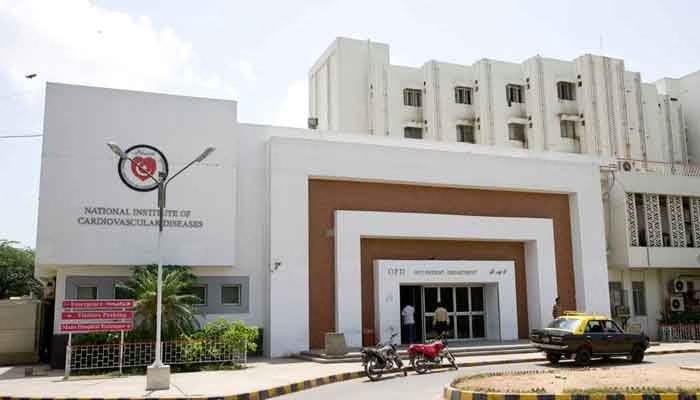The Department of Primary and Secondary Health Care has released the latest data regarding the dengue situation across Punjab, highlighting a significant rise in cases. According to the department’s spokesman, a total of 720 new dengue cases have been reported in just the past week. This brings the total number of dengue cases in the province to 1,965 so far this year. The health department is now ramping up efforts to combat the spread of the virus as the monsoon season and increased humidity create ideal breeding conditions for mosquitoes, which are responsible for transmitting dengue.
Breakdown of Dengue Cases by Region
The latest report from the health department indicates that the bulk of dengue cases were concentrated in Rawalpindi, Lahore, and Kasur. In the last twenty-four hours alone, Rawalpindi reported 109 new cases, Lahore recorded 8 cases, and Kasur registered 2 cases. These numbers reflect a concerning rise in infections, especially in Rawalpindi, which has been one of the worst-affected areas in recent years.
Additionally, other cities across Punjab are also experiencing a surge in dengue infections. Faisalabad and Attock reported 3 cases each, while one case was reported from Jhelum, Gujranwala, Chakwal, Sialkot, and Toba Tek Singh. While these numbers may seem small compared to larger cities, they still signify a growing threat that the authorities are taking seriously.
Government’s Response to the Dengue Outbreak
In response to the surge in cases, the health department’s spokesperson assured the public that the government has taken comprehensive measures to tackle the dengue outbreak. The spokesperson highlighted that all government hospitals in the affected regions have been fully equipped with the necessary medical supplies, including dengue-specific medications and treatments.
In addition to stocking up on medicines, the government has also ramped up preventive measures, including regular fumigation drives, public awareness campaigns, and dengue surveillance efforts to identify and eliminate mosquito breeding sites. The department is encouraging citizens to cooperate with authorities by keeping their surroundings clean, removing stagnant water where mosquitoes can breed, and using mosquito repellents.
The spokesperson emphasized that the health department is prepared to handle the increasing number of cases, with sufficient bed capacity and medical staff available to provide necessary care to dengue patients. Hospitals in dengue hotspots have been instructed to remain on high alert, and special isolation wards have been set up for dengue patients in most government hospitals.
Dengue Prevention Efforts in Full Swing
As part of its broader dengue prevention strategy, the Punjab government has been conducting massive awareness campaigns aimed at educating the public about the dangers of dengue and the preventive steps that can be taken to reduce the risk of infection. These campaigns are being conducted through local media, social media platforms, and community outreach programs.
Fumigation drives are also in full swing, especially in areas where large clusters of dengue cases have been reported. These drives aim to kill the mosquitoes responsible for spreading the dengue virus and destroy their breeding grounds, such as stagnant water pools, open containers, and poorly maintained drainage systems.
The health department is working closely with local municipal authorities to ensure that dengue prevention protocols are being followed, including the regular disposal of waste and the cleaning of water bodies in residential areas. Community-based dengue surveillance teams have also been deployed in various districts to monitor high-risk areas and promptly address any signs of mosquito breeding.
Dengue Symptoms and Precautions
The health department’s spokesperson has urged the public to be vigilant about the symptoms of dengue and to seek medical attention if they suspect they may be infected. Dengue symptoms typically include high fever, severe headache, pain behind the eyes, joint and muscle pain, rash, and bleeding from the gums or nose in severe cases. Dengue hemorrhagic fever, a more severe form of the disease, can be life-threatening if not treated promptly.
To prevent the spread of dengue, individuals are advised to take the following precautions:
- Use mosquito repellents, especially during peak mosquito activity hours (early morning and evening).
- Wear long-sleeved clothing and pants to minimize skin exposure to mosquitoes.
- Use mosquito nets while sleeping, especially if windows and doors are left open.
- Ensure that all water containers are covered and emptied regularly to prevent mosquitoes from breeding.
- Keep your surroundings clean and free of standing water.
Looking Ahead: Combating the Dengue Threat
While the rise in dengue cases is concerning, the health department’s efforts to address the issue through early intervention and public cooperation offer hope for curbing the outbreak. By following the preventive measures outlined by the government, citizens can play an active role in controlling the spread of dengue in their communities.
The health department is urging the public to remain calm and take proactive steps to protect themselves from mosquito bites. With a coordinated effort between government authorities and the public, there is optimism that the situation can be brought under control in the coming weeks.
As the monsoon season continues, the health department will keep a close watch on the evolving dengue situation and will continue to update the public regularly. The ultimate goal is to prevent further cases and protect the health and well-being of the citizens of Punjab.



